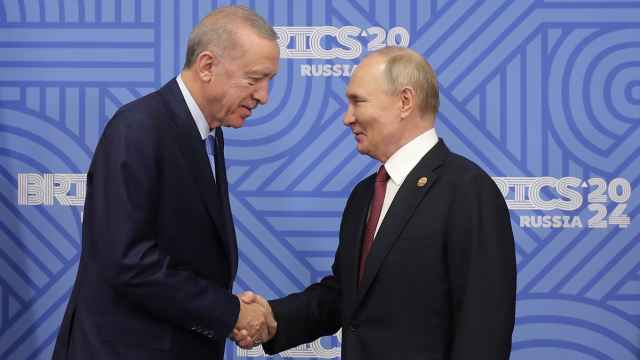In Russia, whenever someone talks about the social responsibility of business, it almost always means that a particular firm should foot the bill for something that benefits society. For example, if a governor proposes that a business financially support a local hospital or hockey team, it is understood that the money will be taken from the company’s profits.
But it is more interesting when a firm chooses a socially responsible strategy not because of political pressure, but because the strategy is more profitable — that is, when something that benefits society is at the same time commercially more advantageous for the firm itself.
An example is Starbucks policy prohibiting alcoholic beverages and smoking in its Moscow coffee shops. That strategy obviously makes the cafes less attractive to the more than half of the Russian population who smokes. It also eliminates the substantial revenue from alcohol earned by its main competitors on the Russian market, many of which modeled themselves after Starbucks.
The most interesting twist is that Starbucks’ policy is ultimately more profitable because it targets a highly professional market segment that has a large purchasing power. At the same time, it communicates to young Russians that smoking and drinking outside of bars is not cool or glamorous. This sends a much stronger signal to the youth than any dire warnings in bold, capital letters on cigarette packets.
It is interesting that the “Social Responsibility” section of the Starbucks web site in Russia doesn’t even mention the company’s policy regarding smoking and alcohol. Ordinarily, the social battle against smoking or drinking is not a business priority, but it is great when a private company helps solve a pressing social problem. Interestingly enough, Starbucks is currently experimenting with selling alcoholic drinks in selected U.S. cafes, but lets hope that Starbucks will not extend this policy to Russia.
That being said, the Moscow consumer is complex, and firms cannot ignore local demand, of course. For example, an international Italian fast food pizza chain that, judging from its web site, does not sell beer in its U.S. stores, does sell it in Moscow. It really is more difficult to turn a profit in Russia without selling beer. Nonetheless, McDonald’s and Subway — both direct competitors of the pizza chain — do not sell alcoholic beverages, and this fulfills an important social function. Every day, hundreds of thousands of young Russians who visit McDonald’s and Subway receive the healthy social message that alcohol is far from being an essential part of a meal.
I do not believe that restaurants — or any commercial enterprise for that matter — must serve the interests of society much beyond its traditional roles of creating jobs and wealth, paying taxes and providing much-needed goods and services to society in a competitive environment. But cafes that do not permit smoking and fast food chains that do not serve alcohol are definitely a step in the right direction.
Konstantin Sonin is a professor at the New Economic School in Moscow and a columnist for Vedomosti.
A Message from The Moscow Times:
Dear readers,
We are facing unprecedented challenges. Russia's Prosecutor General's Office has designated The Moscow Times as an "undesirable" organization, criminalizing our work and putting our staff at risk of prosecution. This follows our earlier unjust labeling as a "foreign agent."
These actions are direct attempts to silence independent journalism in Russia. The authorities claim our work "discredits the decisions of the Russian leadership." We see things differently: we strive to provide accurate, unbiased reporting on Russia.
We, the journalists of The Moscow Times, refuse to be silenced. But to continue our work, we need your help.
Your support, no matter how small, makes a world of difference. If you can, please support us monthly starting from just $2. It's quick to set up, and every contribution makes a significant impact.
By supporting The Moscow Times, you're defending open, independent journalism in the face of repression. Thank you for standing with us.
Remind me later.





